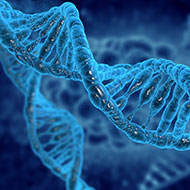
Results highlight potential of non-invasive biomarkers in veterinary industry
Biotechnology company Oxford BioDynamics (OBD) has announced the results of a study focused on diagnosing B-cell lymphoma in dogs. OBD is centred around discovering and developing biomarkers based on regulatory 3D genome architecture, to be used within the pharmaceutical and biotechnology industry.
The study was presented at the American Association for Cancer Research (AACR) Conference on Advances in Liquid Biopsies, and was conducted in collaboration with multiple departments from the University of Minnesota including the College of Veterinary Medicine and Masonic Cancer Centre.
According to the study, OBD utilised its proprietary datasets of markers specific for regulatory 3D genome architecture of lymphoma in humans – as defined by its EpiSwitch platform – to assess if these could be successfully translated into dogs.
Using whole blood from a group of dogs with lymphoma the company was able to generate a new biomarker signature. This signature could correctly identify dogs with and without lymphoma with 80 per cent accuracy, sensitivity and specificity, as well as 80 per cent positive and negative predictive value.
These results suggest that OBD’s biomarkers can be successfully translated across species for related conditions, and could be applied in new therapeutic developments, including within the veterinary industry.
Chief scientific officer of Oxford BioDynamics Alexandre Akoulitchev said: “Our EpiSwitch technology has provided us with a great wealth of data associated with lymphoma patients, and subsequently allowed us to translate these insights into canines, where there is a well-recognised unmet need. It is clear that the fundamentals of 3D genomics open up a new dimension for the application of [these biomarkers], particularly in veterinary science and animal welfare.”



 The Veterinary Medicines Directorate (VMD) is inviting applications from veterinary students to attend a one-week extramural studies (EMS) placement in July 2026.
The Veterinary Medicines Directorate (VMD) is inviting applications from veterinary students to attend a one-week extramural studies (EMS) placement in July 2026.